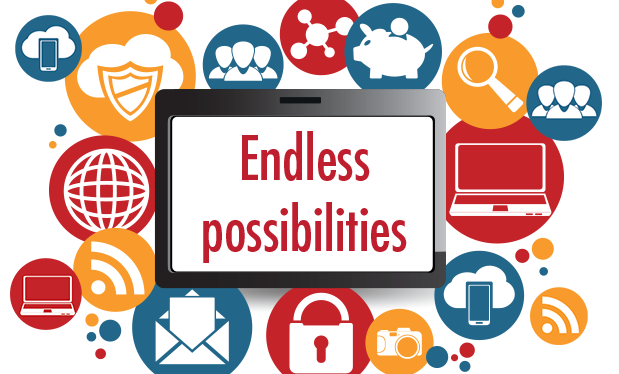For many people, trust is absolute confidence in the honesty and reliability of another person. Trust can be difficult to gain, easy to lose and critical to your business' success. The more people trust you, the more they understand you have their best intentions in mind and the more they will buy your products and services.
Achieving trust is important for closing sales on your reroofing projects. When you meet with a homeowner to discuss a potential project and the relationship is new, trust must be established. For your customer, initiating a roofing project of any kind requires a high level of trust in someone they may not know. The person you're talking to could be making a $5,000, $10,000 or even $100,000 decision after spending just a few hours with you. It's similar to proposing marriage on a first date. Supreme trust in you and your abilities is the only way your customers will ever say "I do" and move forward. To help establish trust with your clients, there are several areas you can focus on to create the level of trust necessary to turn a potential customer into a client.
Building blocks of trust
The following 10 building blocks of trust can help you establish and build confidence with new clients. By building upon these, you should see your closing rates increase.
Nonverbal clues
Trust first is developed emotionally. In fact, according to a 2005 Princeton University, Princeton, N.J., study, the mental "snapshot" made in the first two seconds when people meet you is so vivid, it takes another four minutes to add 50 percent more to the impression. Before you speak or reach out a hand, the customer's subconscious mind is processing years of embedded information to determine whether you can be trusted. In milliseconds, you're being measured against every experience—good and bad—the customer has had with contractors in the past. It's important to ensure the first "clues" your customers see—posture, dress, grooming, jewelry, etc., all shout: This person can be trusted!
Likability
It's virtually impossible to trust people we don't like. Think about the last time you met someone for the first time but it felt like being with an old friend. There's a good chance this person had a firm handshake, warm smile and gave you three to seven seconds of repeated eye contact while you were talking. Sincere eye contact and a smile are the shortest path to likability and trust. It's difficult, if not impossible, to trust someone who doesn't "look you in the eye."
Why is eye contact so important? Because human eyes are the only part of the central nervous system in direct contact with another human being.
Sincere interest
We trust people who take time to learn about us. Dale Carnegie said: "You can make more friends in two months by becoming interested in other people than you can in two years by trying to get other people interested in you." To find a person's interests, look around his or her home or office. People wouldn't allow others to see pictures of their grandchildren, trophies or awards if they didn't want to talk about them. Be sincere. Don't just "read the walls" and make comments to create awkward small talk. Ask questions about things of which you're sincerely interested in learning.
Listen
We tend to like people who listen to us. We tend to agree with people we like. We buy from those with whom we agree and like. Listening is much more than hearing; it's understanding. Listen with your ears and your eyes. Don't rush to respond or write something—you may miss body language. Many times, an eye roll or shoulder shrug can tell you more about what your customers want than anything they've said. Increase trust by listening and taking detailed notes, nodding in agreement, pausing after a customer finishes speaking and paraphrasing to show you're processing the information the customer provides. Good listening is critical in the construction business.
Enthusiasm
It's more true now than ever before: You can't sell unless you're sold. Harold Whitehead, who wrote Principles of Salesmanship in 1917, said: "50 percent of all success, whether in business, art, science or politics can be attributed to enthusiasm." People who are enthusiastic about making their customers' lives better aren't so much selling as they are sharing what they believe. You may have heard the last four letters of enthusiasm stand for "I am sold myself." Your customers will rarely be more excited about the solution you've put together than you are. Don't be afraid to be enthusiastic.
Show you care
We trust people who care about us and our well-being. We measure the level of caring by actions and not words. Show you care about a customer's time by planning ahead and not wasting it. Explain how you'll take care of property, possessions, employees, family, pets, etc. Care enough to not only give customers what they want, but also to help them discover what they need. Show how additional accessories, services and equipment will make their lives better. Be careful when it comes to showing you care. Only offer solutions you know will benefit your customers' homes and families. It's not difficult for most customers to realize when a contractor is looking to pad the bottom line.
Discover problems
We trust people, such as physicians, who take time to gain the information necessary to solve problems. When you ask the right questions, you'll gain valuable information about a customer and probably discover problems the low-priced competition has overlooked. In our price-sensitive, highly competitive industry, being different builds trust and closes sales.
Instill confidence
It's much easier to trust people who know what they're doing. Given a choice, we all would rather deal with specialists. One key to instilling confidence is breaking down technical details to a point a customer easily can understand. Other ways include explaining what quality is and how it will be delivered, what to expect and when, and what will be done if a problem arises. Every company claims they are a quality company. But when you own the definition of quality, you become the measuring stick your customers use to judge everyone else. To provide a higher level of confidence, give customers your cell phone number and encourage them to call any time.
Don't hide anything
We don't trust people who hide things from us. Think about every element of the sales appointment. As you run through it mentally, are there things being done your customer can't see or be a part of? Get your customers involved and highlight your expertise by inviting them on work site surveys you'll be conducting and point out issues the "other guy" missed.
Take steps to get them involved with creating designs, selecting materials and figuring energy calculations, and keep your customers updated regarding the permitting processes. When determining a sales price, instead of marking up the cost, show the customer preprinted retail price sheets. How transparent and easy to understand is your pricing?
Exceed expectations
To build the level of trust needed to provide repeat sales and customer referrals, always under-promise and overdeliver. We trust people who do more than we expect. When you follow up exactly when you say you will and at a specific time, you demonstrate you can be trusted. On the other hand, if you mention in passing you'll send the customer a piece of literature but don't, a degree of trust will be lost.
Close your sales
Try using some or all these trust-building blocks on your next appointment. You'll be surprised how quickly you'll build $5,000, $10,000 or even $100,000 worth of trust to close the sale. But if you skip too many of these areas, you'll only hear "Thanks for stopping by, we'll call you" as they close the door.
James Mueller is president of No Pressure Selling,® Phoenix.



